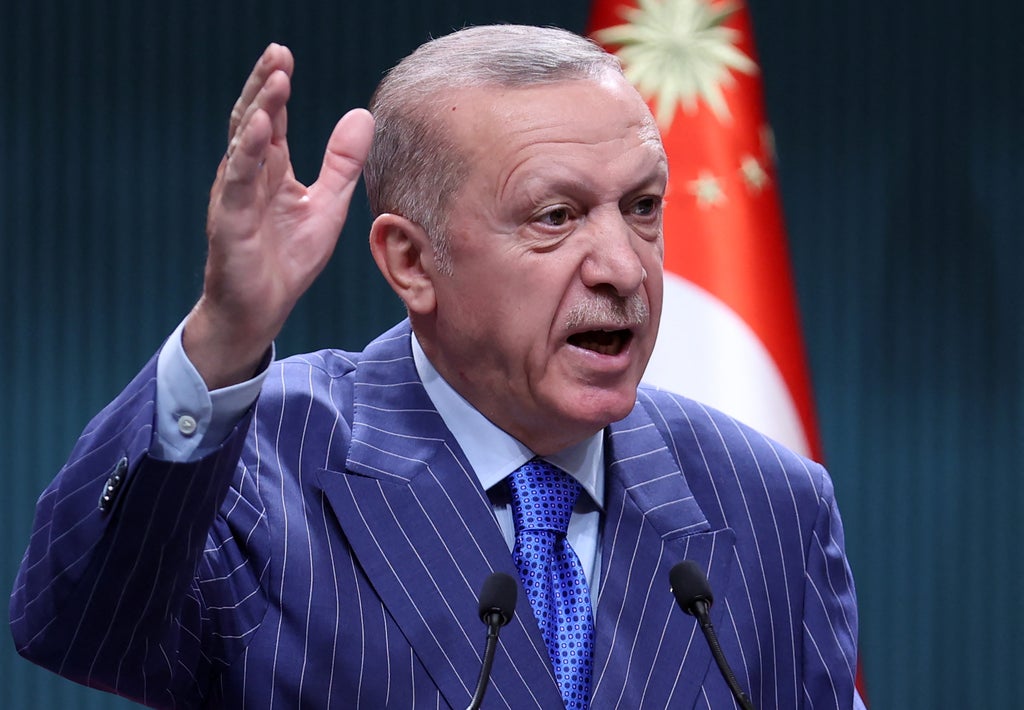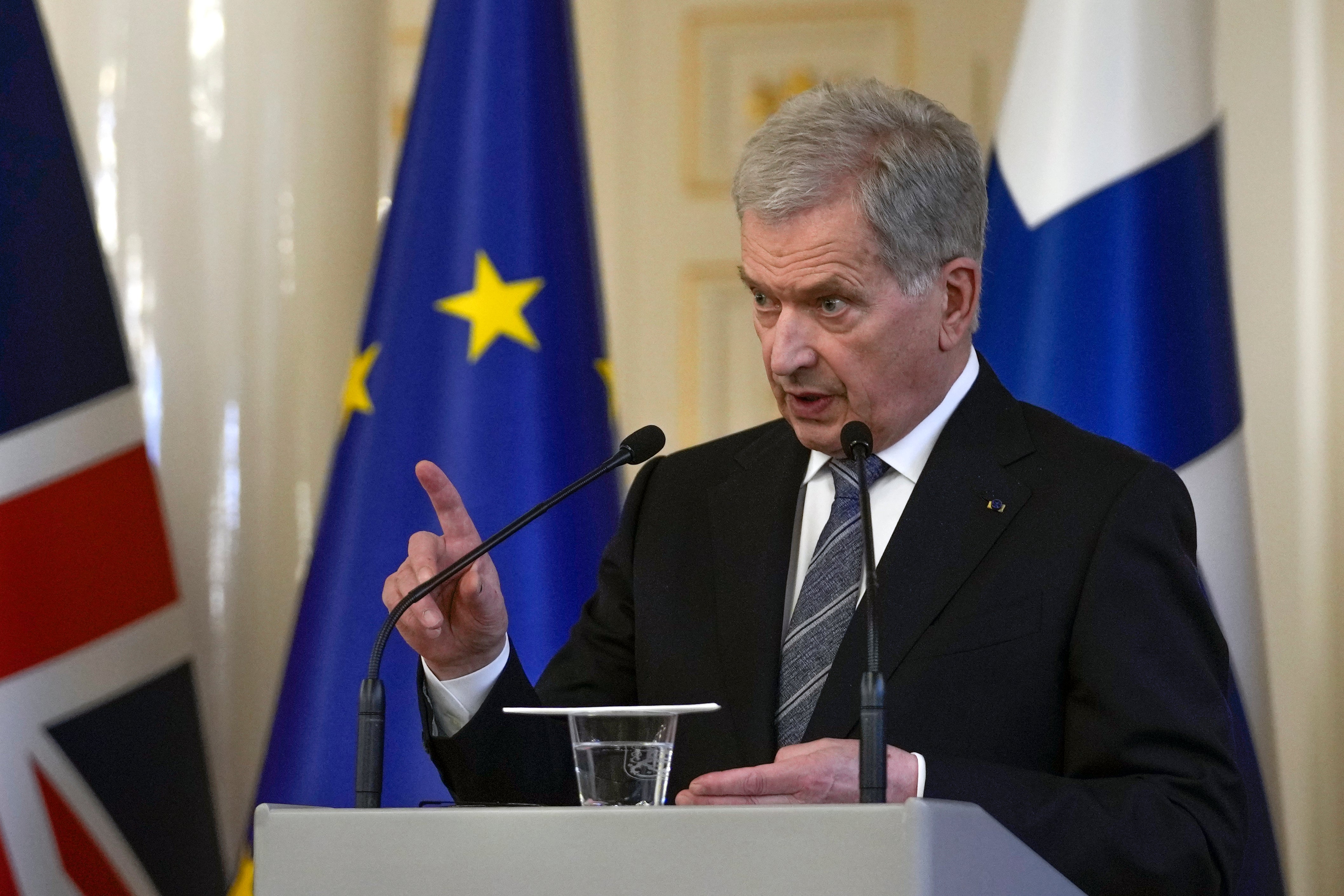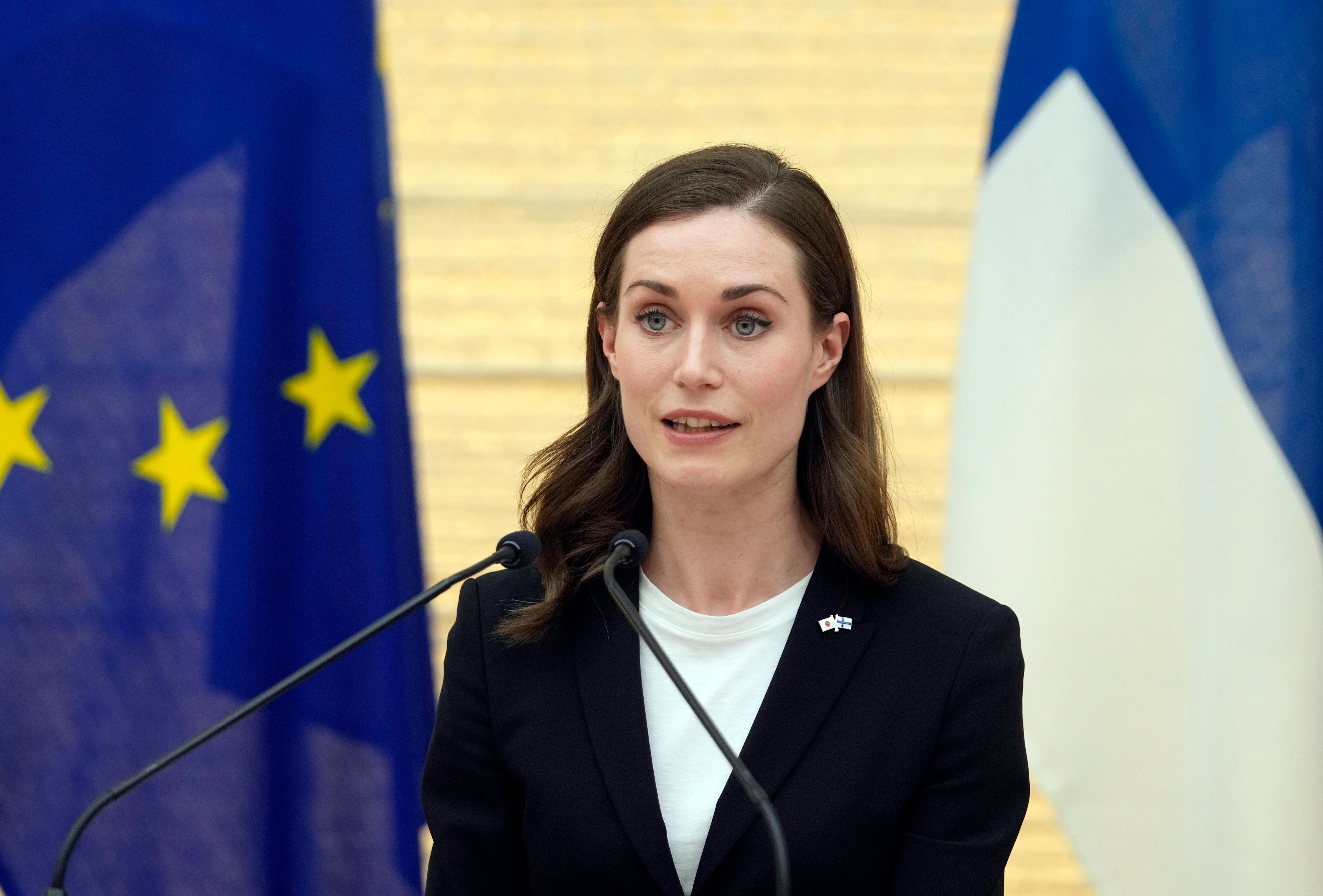
Turkey’s president Recep Tayyip Erdogan has criticised Finland’s decision to apply for Nato membership, claiming it and neighbouring Sweden are “home to many terrorist organisations”.
The opposition from Erdogan has the potential to thwart the potential bids from the two nations, since membership of the alliance hinges on unanimous agreement from all 30 member states. Turkey is a Nato member.
“We are following the developments regarding Sweden and Finland, but we don’t hold positive views,” Erdogan told reporters in Istanbul, adding it was a mistake for Nato to accept Greece as a member in the past.
“As Turkey, we don’t want to repeat similar mistakes. Furthermore, Scandinavian countries are guesthouses for terrorist organisations,” Erdogan said, without expanding on any details of the claim.
“They are even members of the parliament in some countries. It is not possible for us to be in favour,” he added.
In response to Erdogan’s statement, which appeared to come as a surprise to Finland, foreign minister Pekka Haavisto urged patience and called for a step-by-step approach in response.
“We need some patience in this type of process, it’s not happening in one day... let’s take issues step-by-step,” Haavisto told reporters.
Haavisto visited Turkey twice in recent months and Finnish president Sauli Niinisto spoke on the phone with Erdogan in early April.
After that call, Niinisto tweeted: “Turkey supports Finland’s goals.”
Finland announced on Thursday it was going to apply for Nato membership, Sweden is expected to follow suit in the next few days.

After Finland’s announcement, Moscow said it could be cut off from Russian gas. On Friday, Russia’s foreign ministry also warned it could be forced to take retaliatory steps against Helsinki.
A statement said: “Russia will be forced to take retaliatory steps, both of a military-technical and other nature, in order to stop threats to its national security arising.”
Kremlin spokesman Dmitry Peskov also said that Finland had taken “unfriendly steps” against Russia.
On possible responses, Mr Peskov added: “Everything will depend on how this process of Nato expansion plays out, the extent to which military infrastructure moves closer to our borders.”
About 60-70 per cent of gas used in Finland originates from Russia but only five per cent of the country’s total energy consumption last year, according to national statistics. Oil, wood-based biomass and nuclear power are their main sources of energy.
Kyiv’s successes in holding off the Russian assault are, in part, down to Nato’s filtering of military vehicles, weaponry and other support via its members bordering Ukraine.

Finland has claimed the decision to try and join Nato has been caused by Russia’s actions.
“You (Russia) caused this. Look in the mirror,” said Niinisto.
Sweden is also expected to decide on joining Nato in the coming days, and is predicted to follow in the footsteps of neighbouring Finland.
Speaking on Friday, however, Sweden’s defence minister Peter Hultqvist said that if the country were to apply to join Nato, it could increase the risk of a Russian reaction.
Its joining would represent a major change in Europe’s security landscape: Sweden has avoided military alliances for more than 200 years, while Finland adopted neutrality after its defeat by the Soviets in the Second World War.







